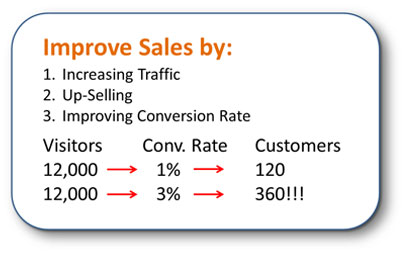Keyword Reports are for Fools and Insomniacs

Are You Suffering from Keyword Anxiety?
The fact is, search engines are getting smarter and they are no longer fixated on individual keywords. They’re focused on user intent… and so should you.
Just a few short years ago we measured our client’s success by where they ranked in the search results for specific keywords. “But our business is down” they said. “Shut up, you’re ranking for all the keywords we agreed to optimize” we’d reply (not really, but that type of discussion sounds familiar).
What’s Changed?
Search engines like Google, Yahoo and Bing were focused on keywords because that was the limit of their technology. They would simply try and match individual keywords in your search string with the same keywords on web pages. The results were sometimes good, but rarely great.
Because search engines are now trying to interpret “User Intent” (what you are actually looking for) instead of individual keywords, it makes sense that measuring individual keywords now becomes more of a barometer of success than the definitive measure of success.
It’s impossible to monitor every possible combination of keywords that Google is indexing you for. You are probably showing up for keyword phrases that you weren’t even aware of. Keyword combinations that you wouldn’t even think of. Why? Because the search engines can now figure out what consumers are searching for even if the keyword phrase doesn’t appear on the web page.
Key Takeaway:
Your keyword position report is only as good as the individual keywords you happen to be tracking. Suppose you are monitoring a keyword that only has 10 searches per month. But suppose there are 20 different variations of that keyword that also has 10 searches per month. Would measuring that one keyword without measuring all the possibilities be a good indicator of success?
When I search on any of the following phrases, our company, Kreative Webworks shows up in the search results:
- orange county online marketing
- digital marketing orange county
- how to evaluate a digital marketing agency
- easy to follow inbound marketing sequence
The only common keyword in all 4 search phrases is “marketing”. The only phrase that we have actively been optimizing is: “digital marketing” yet Google knows what I’m looking for because over time we have made ourselves an authority in marketing in our geographic area.
I can assure you that we come up for hundreds of other possible combinations…but we don’t necessarily know what they are, so how can we monitor them?
To compound the challenge of relying solely on keyword rankings as the sole indicator of success, search engines have personalized search results based on:
- Location
- Previous searches
- Previous websites you’ve visited
- Demographic data
- Time of day
In other words, what you see and I see when we search on the exact same keyword phrase can vary dramatically. Even under the same conditions, keyword rankings fluctuate constantly. That’s why keyword positions alone is not a good measurement of success.
10 Metrics You Need to be Measuring:
There are certain KPIs (Key Performance Indicators) that when taken in aggregate, really paint an accurate picture of how your web presence is progressing. Here are my recommendations:
1: Total Visitors: This is the baseline key performance indicator. If you properly filter out robotic traffic and other irrelevant visits, you’re left with a pretty good indicator on how your marketing efforts are paying off.
2: Organic Traffic: This is traffic that is the results of your search optimization efforts. If this number is steadily increasing (minus cyclical factors) you are probably on the right track.
3: Conversion Rate: This is arguably the most important metric. You can spend a lot of money and effort doubling your
visitor count, or you can make a few tweaks to increase the amount of existing visits that convert to whatever metric represents success for
you (phone calls, emails, submitted forms, downloads, transactions, etc.). Take a look at the impact increasing your conversion rate by just
2% can have on your bottom line:

Increasing you conversion rate by just a few percentage points has a lot more impact than increasing traffic. In the scenario above you
would need an extra 24,000 visitors to have the same impact as just doing things right in the first place!
4: Average Time on Site: If visitors are spending an appreciable amount of time on your site, well that might indicate they found what they are looking for and that you are doing a good job attracting the right people because your website is on topic. Keep in mind that if someone stays on your site for 5 minutes, and the next person only stays 5 seconds, your average time on site is 2.5 minutes (this is a relative number).
5: Average Page views: The more pages your audience is exposed to, the more likely they are interested in what you are offering.
6: Bounce Rate: When someone comes to a page on your site and immediately leaves without going to another page or performing an action, they’ve essentially “bounced” off your site. A high bounce rate may be an indication that you are doing a poor job of attracting the right people or that your website just sucks (there are many different flavors of sucking). Keep in mind that if someone comes to a good landing page and just picks up the phone and calls you, it may appear that they bounced, but in reality that was a success.
7: New Visitors: The importance of this often depends on your industry and your goals, but generally speaking, if you aren’t getting new visitors, something is wrong.
8: Returning Visitors: This varies by industry and goals as well, but if repeat sales is your goal, this is a valuable metric that indicates your site is doing a good job.
9: Month-over-Month: Although month over month comparisons can be deceptive in a seasonal or cyclical industry, it is still the shortest amount of elapsed time worth considering. Given the slow lumbering pace that search trends often reveal themselves, we often use quarterly comparisons as well.
10: Year-over-Year: Taking a more macro view of your progress can help accommodate for any cyclical conditions as well as
equalizing a host of short term variables. Keep in mind that external influences such as new competitors, new trends and even the general
economy can influence the year over year comparison.
Keyword research is important, and keeping an eye on a few keyword placements as indicators is a good practice, but the days of relying on
keyword placement as your sole indicator of success is over. Rather than trying to rank as high as possible of as many keywords as you can,
you should strive to serve as many user needs as possible and then make sure the search engines have all the info they need to figure out
what you are about, and how you truly meet the consumer’s needs. Then measure the things that mater…
If you want to know more about Analytics, and what to measure, feel free to contact us.
